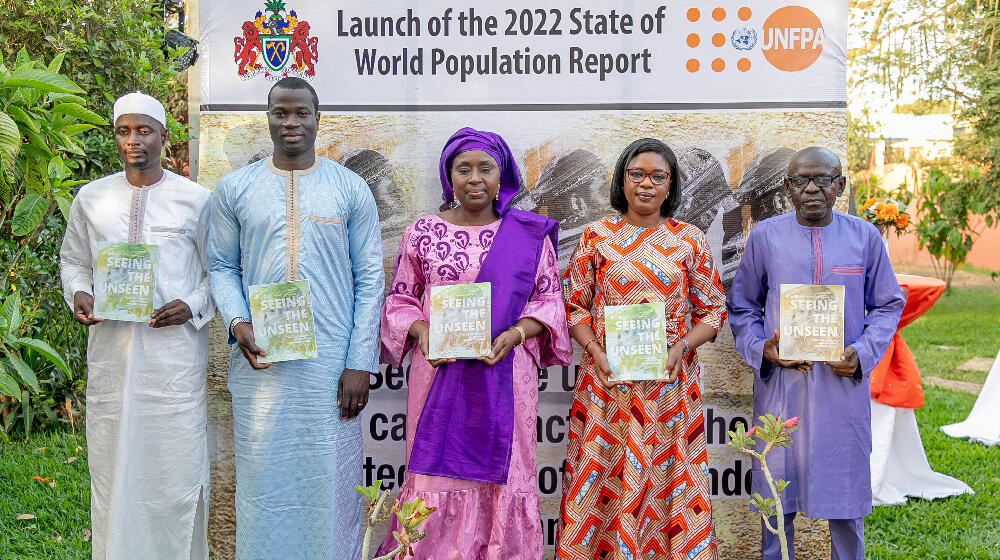BANJUL 20 May 2022 – Nearly half of all pregnancies, totalling 121 million each year throughout the world, are unintended. For most of the women and girls affected, the most life-altering reproductive choice on whether to become pregnant or not is no choice at all, explains the State of World Population (SoWP) 2022 report, released by UNFPA. The ground-breaking report, “Seeing the Unseen: The case for action in the neglected crisis of unintended pregnancy”, warns that this human rights crisis has profound consequences for societies, women and girls and global health.
Over 60 per cent of unintended pregnancies end in abortion and an estimated 45% of all abortions are unsafe, causing 5 – 13% of all maternal deaths, thereby having a major impact on the world’s ability to reach the Sustainable Development Goals by 2030.
In The Gambia today, the unmet need for Family Planning is currently at 24% while the Contraceptive Prevalence Rate for modern methods of contraceptives is estimated at 19% and the Total Demand for Family Planning among women is about 43%. This shows that a considerable part of the population needs modern contraceptive commodities but do not have access. This means that the said population have limited autonomy, if any, over their bodies, fertility, and ability to make informed choices, thus contributing to the staggering high rates of unintended pregnancies globally. Between 2015 to 2019, unintended pregnancies in The Gambia stood at 54 per 1000 women and only 23% of women can make decisions on their sexual and reproductive health and rights. These figures reflect the pressure societies place on women and girls to become mothers. An unintended pregnancy is not necessarily a personal failure and may be due to the lack of autonomy society allows or the value placed on women’s lives.
On Friday 20th May 2022, the Honourable Minister of Gender, Children and Social Welfare on behalf of His Excellency the Vice President of The Republic of The Gambia, launched the 2022 SoWP report at the Alliance Française de Banjul. The report should serve as a wakeup call to all of us as it highlights how easily the most fundamental rights of women and girls are often pushed to the backburner. It calls on decision-makers and healthcare systems to prioritise the prevention of unintended pregnancies by improving the accessibility, acceptability, quality and variety of contraceptives and greatly expanding quality sexual and reproductive health care and information. It urges policy makers, community leaders and all individuals to empower women and girls to make affirmative decisions about contraception and motherhood, and to foster societies that recognise the full worth of women and girls. Women and girls will be able to contribute fully to society, and will have the tools, information and power to make this fundamental choice—to have children, or not—for themselves.
Through The Gambia Government-UNFPA funded Country Programme, a lot has been done towards improving the reproductive health and rights of women and girls. The Country Programme has over the years supported the development of a National Family Planning Policy, a Costed Implementation Plan and a Communication Strategy for the Ministry of Health, in order to aid effective Family Planning programming to benefit everyone, everywhere in the country. UNFPA in collaboration with the Government of The Gambia remains committed to continue investing in the realisation of zero unmet need for family planning and the empowerment of women and girls and their families, to be able to make informed choices. These investments will have a ripple effect on the productivity of the population, strengthening socio-economic indicators and inspire inclusive sustainable development.
END
Media contact: Haddy Jonga – Programme Analyst, Communications, UNFPA The Gambia jonga@unfpa.org


